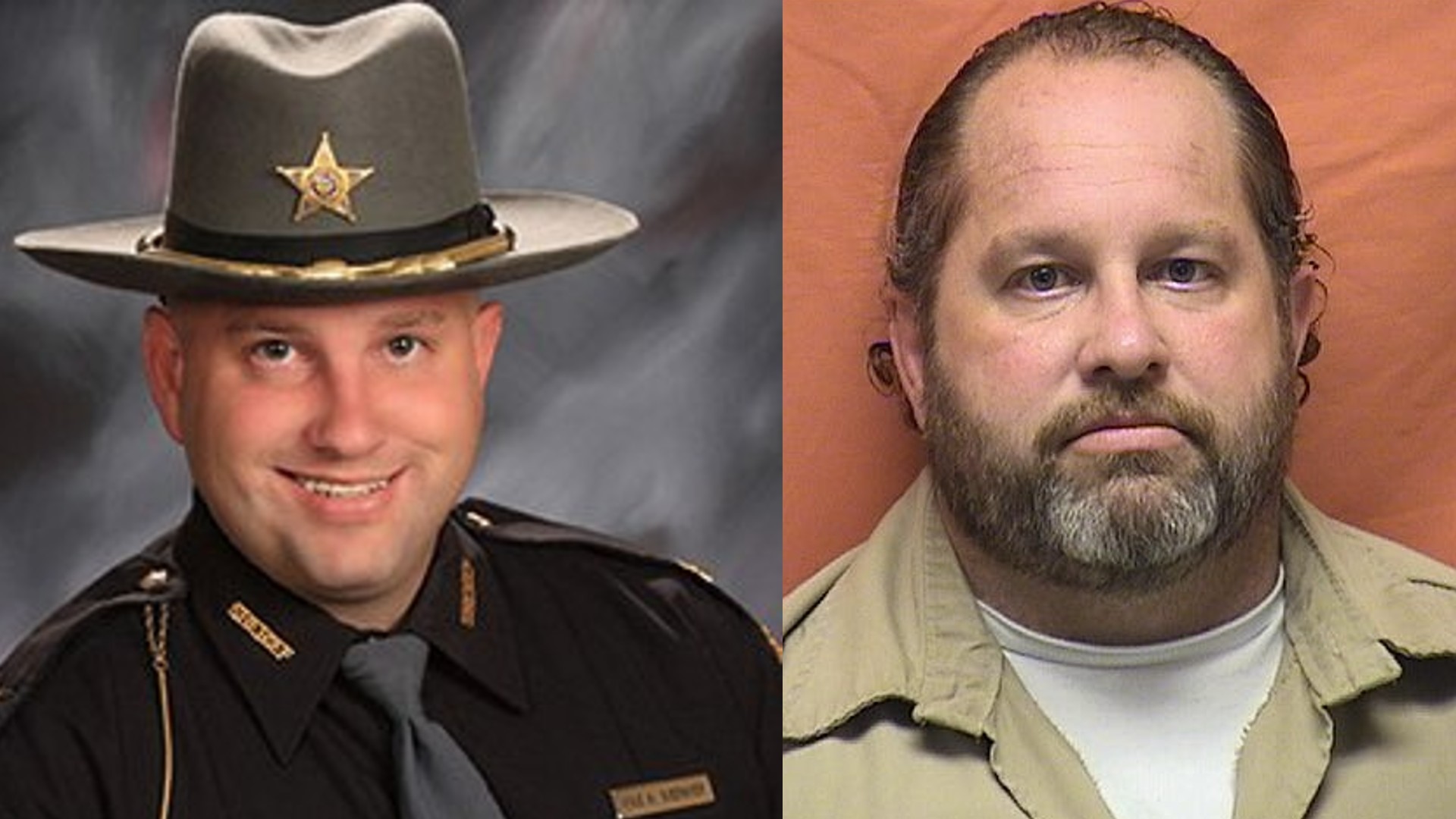SANDUSKY COUNTY, Ohio — “I knew deep down that I was an addict, but because of who I was. I didn’t want to reveal that. So I kept holding everything in. Denial, denial and shame and shame," said Kyle Overmyer.
An open and honest confession from a man, who once lived a life full of deception. Sworn to uphold the law, Kyle Overmyer knowingly broke it. Falling from sheriff to inmate.
“I was diagnosed with arthritis, with a multitude of problems. I used the opioids I was prescribed for the physical pain, for my mental pain," claims Overmyer.
At 34-years-old, Overmyer was the youngest sheriff in Ohio when he was appointed in Sandusky County back in 2008. He said the stress of the job combined with the physical pain he tried to manage snowballed into a full opioid addiction.
“I ended up deceiving doctors, stilling pills from the take-back box at the sheriff’s office to feed my addiction, and it ended up getting me four years in prison”, said Overmyer.
Suddenly Overmyer – was on the other side of the law. Forced to deal with his addiction head-on.
“Some would say in your position as sheriff, you were being a hypocrite”, said 10TV's Andrew Kinsey.
“And I can see some people saying that. But unfortunately, when a man or a woman wears a badge and a uniform – they are held to a higher standard. Which then it holds you back from showing your weaknesses. Who would have ever thought the sheriff of the county would be an addict?" replied Overmyer.
And Overmyer isn’t alone. Studies show a correlation between high-stress careers, like law enforcement, and substance abuse. With as many as 30% of first responders struggling with some type of addiction.
“I like to say it’s like putting bricks in a wheelbarrow after every time you’ve experienced a traumatic incident. After a while, three, four to five years - that wheelbarrow is going to topple over," said Overmyer.
Dr. Ron Rufo is a retired Chicago police officer and author who spent 22 years on the force. He says many officers are suffering in silence internalizing their feelings, because of a stigma that guilts them into masking their emotions. He claims it often starts at the academy.
"You had to be a tough guy, you had to have that nothing is going to bother me attitude. I am strong, I can’t be the weak link in the chain”, explained Dr. Rufo.
It’s a cycle studies have shown often leads to many officers taking their own lives. It’s why Rufo says law enforcement departments across the country, have to make mental health a priority.
"If you are mandated to go to counseling, like your mandated to shoot your weapon. If someone really wanted to talk to someone, that is their opportunity," said Columbus Division of Police Commander Dave Hughes.
In Columbus, ensuring officers are healthy from their first day to retirement is the primary focus of the Columbus police wellness bureau.
"Every officer has seen what other humans can do each other that is horrible. And those just pile up. And if it's not addressed or talked about or therapy used – it can really take a toll on an officer's mental psyche," Hughes said.
Commander Hughes oversees the operation at the bureau, which has been up and running for roughly two years. It provides officers with access to various resources. Offering help with grief, stress and addiction - using peer assistance, trained professionals and even a therapy dog.
"We make sure here, that an officer who is struggling if they aren’t fit for duty, we are not going to have them out on the street. We’re going to put them at desk, put them where they can get their head right. Because as you know, someone who is hurting internally could hurt others externally," Hughes said.
Hurt is what Overmyer admits he did to many while feeding his addiction. But now, he's a changed man.
"That Kyle Overmyer who was back in 2016 getting sentenced. I don't know him anymore. I’m not waking up every morning wanting to take those pills. I’m waking up every morning – wanting to help somebody," Overmyer said.
Sober now for six years, out of prison for more than one. Overmyer says his mission now is to use his story of defeat and salvation, to empower other addicts - to make the right decision.
"Sobriety is a beautiful thing," Overmyer said.
Overmyer now works as an addiction advocate covering a wide area of the state, including central Ohio. He is also a motivational speaker through Knock Out Addiction, a company he created to help those struggling with addiction. He has no desire to get back into law enforcement but would not rule out getting into public office to help with prison reform.
Columbus police plan to open a new, larger wellness bureau next spring.

